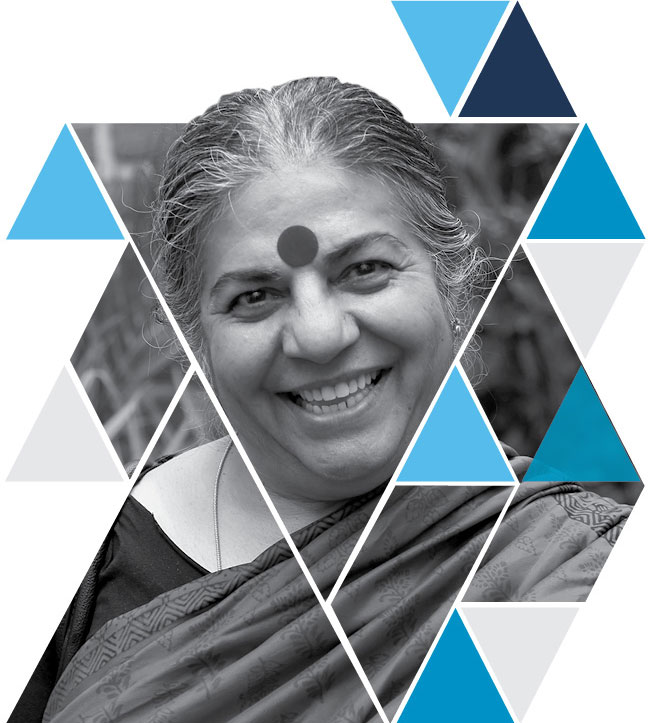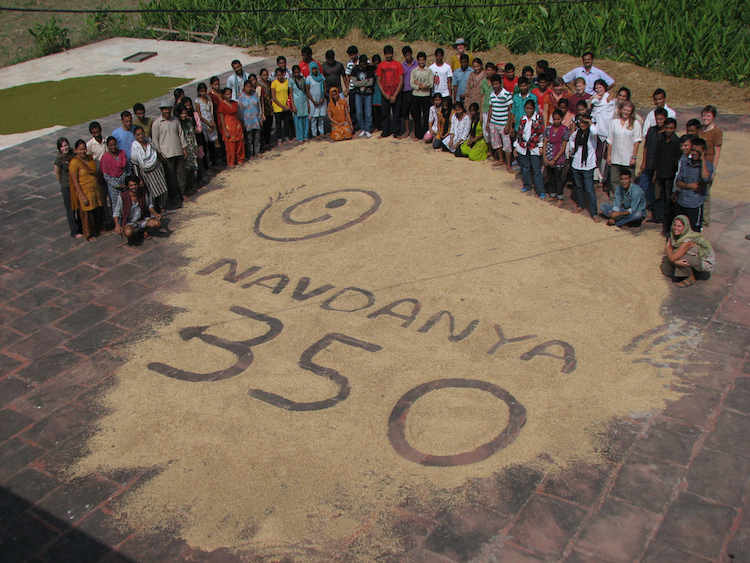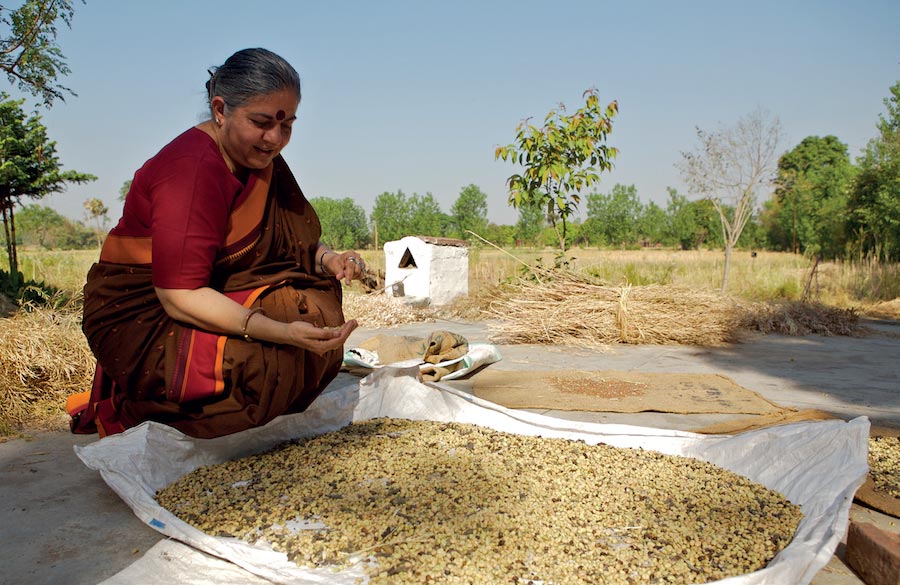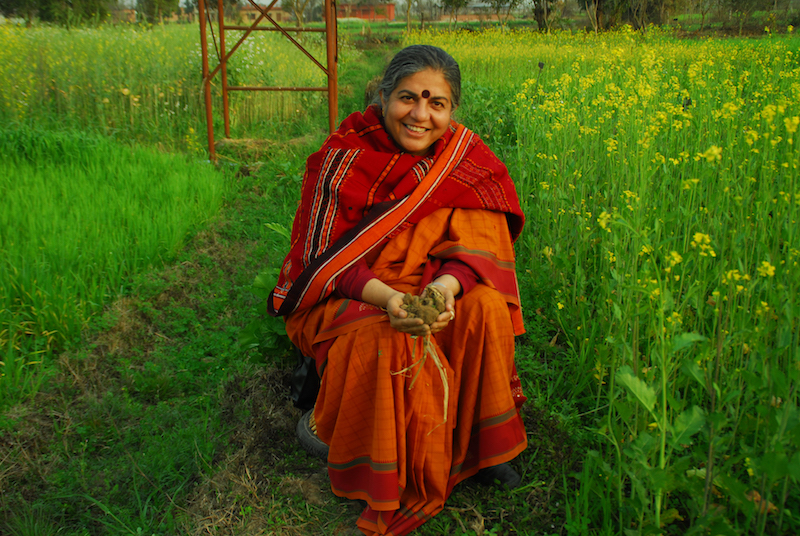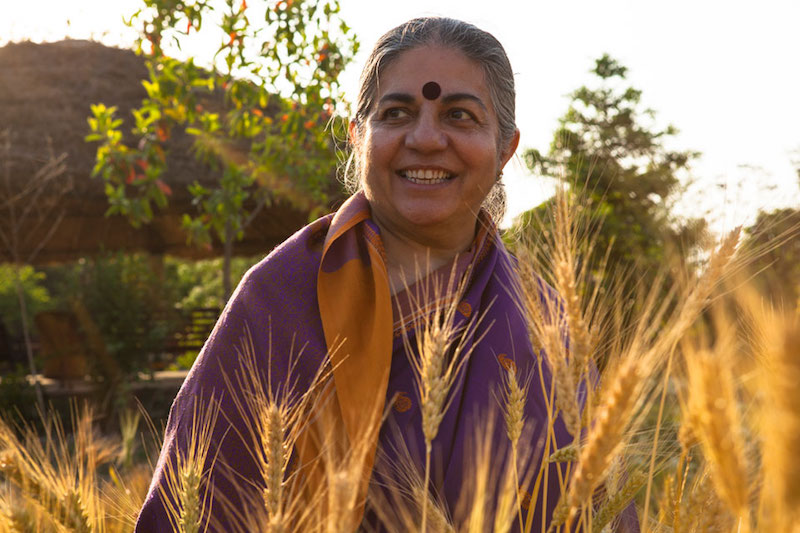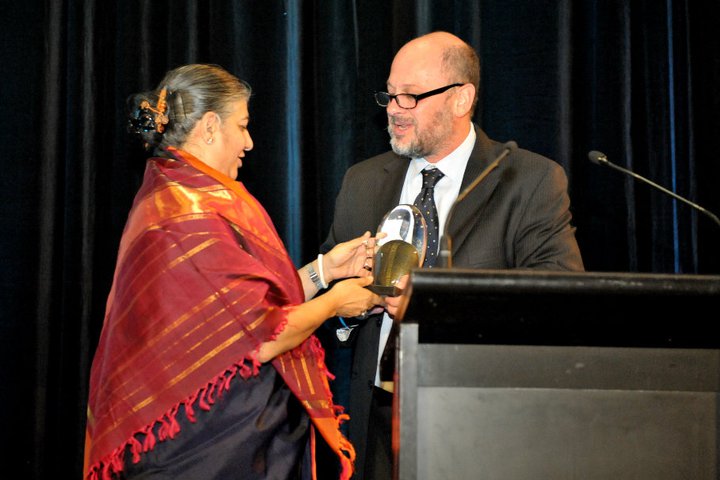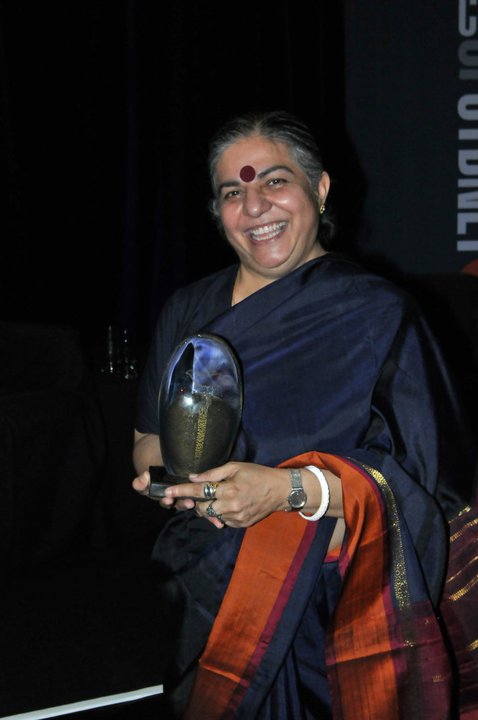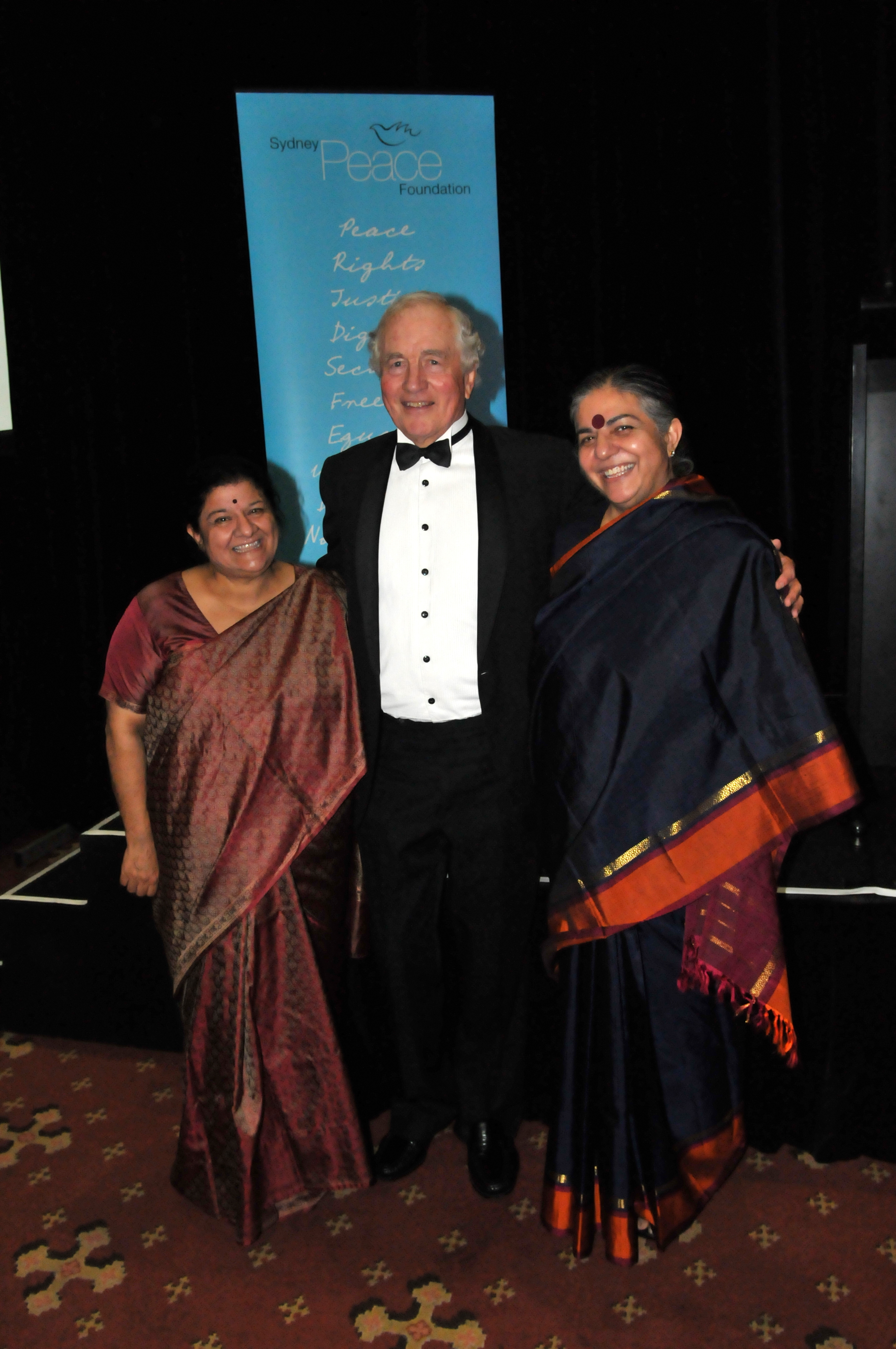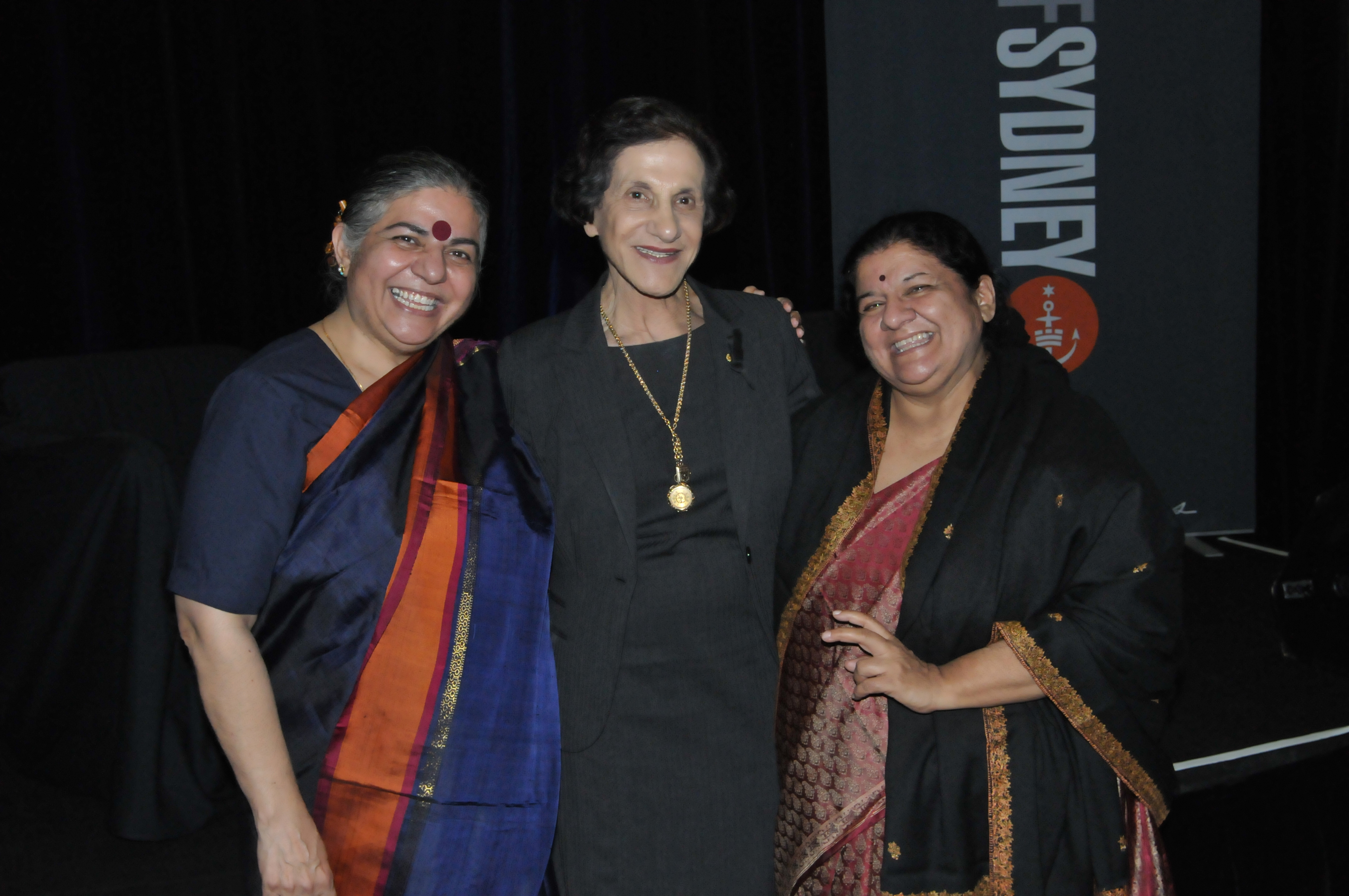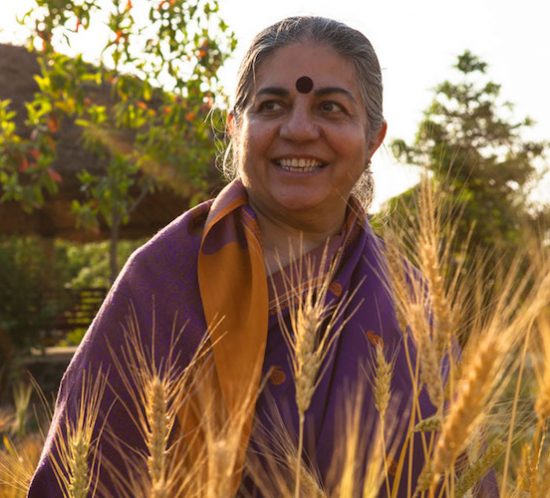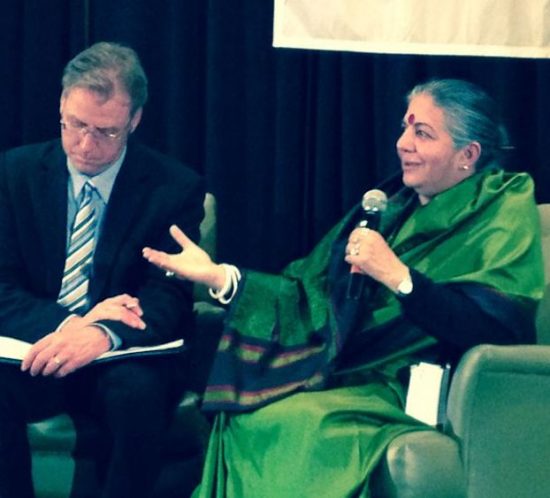Dr. Shiva has contributed in fundamental ways to changing agriculture and food. Her books, “The Violence of Green Revolution” and “Monocultures of the Mind” have become basic challenges to the dominant paradigm of non-sustainable, reductionist Green Revolution agriculture. Intellectual property rights (IPRs) and biodiversity are other areas where Dr. Shiva has contributed intellectually and through campaigns. The Neem Campaign and Basmati Campaign are examples of her leadership in IPR and biopiracy issues.
Besides her activism, she also serves on expert groups of government on IPR legislation. Biotechnology and genetic engineering are another dimension of Dr. Shiva’s campaigning internationally. She has helped movements in Africa, Asia, Latin America, Ireland, Switzerland and Austria with their campaigns against genetic engineering.
Dr Shiva’s campaigns aimed at protecting bio diversity have insisted on stricter standards of bio ethics and have challenged so called advances in biotechnology and genetic engineering. She is regarded as a supporter of farming practices which enable small communities to be self sufficient and in this respect has been one of the significant leaders of the anti globalization movement.
Dr. Shiva’s contributions to gender issues are nationally and internationally recognised. Her book, “Staying Alive” dramatically shifted perceptions of Third World women. In 1990 she wrote a report for the FAO on Women and Agriculture entitled, “Most Farmers in India are Women”. She founded the gender unit at the International Centre for Mountain Development (ICIMOD) in Kathmandu. Dr Shiva suggests that a more sustainable and productive approach to agriculture can be achieved through reinstating a system of farming in India that is centered around engaging women. She advocates against the prevalent “patriarchal logic of exclusion,” claiming that a woman-focused system would change the current system in an extremely positive manner.
In 1998 she initiated an international movement of women working on food, agriculture, patents and biotechnology called, Diverse Women for Diversity. Shiva has also served as an adviser to governments in India and abroad as well as non-governmental organisations, including the International Forum on Globalisation, the Women’s Environment & Development Organization and the Third World Network.
In 1993, Dr Shiva received the Right Livelihood Award (also known as the Alternative Nobel Prize) for “placing women and ecology at the heart of modern development discourse.” Other awards she has received include the Global 500 Award of the United Nations Environment Program (UNEP) in 1993, and the Earth Day International Award of the United Nations (UN) for her dedicated commitment to the preservation of the planet as demonstrated by her actions, leadership and by setting an example for the rest of the world. She has received additional awards from the Netherlands, India, Denmark, Spain, Thailand, Italy and Austria.
As well as being a physicist, philosopher, environmental activist and eco feminist, Dr Vandana Shiva is a celebrated author.


